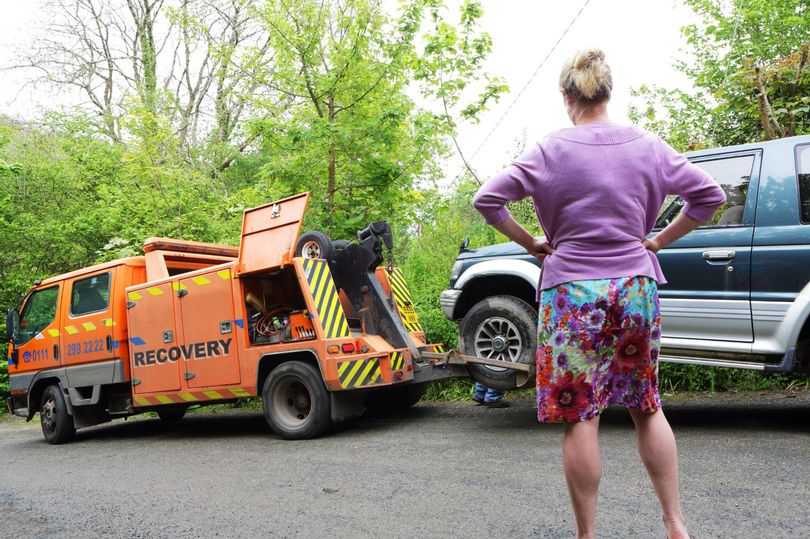Motorists could be breaking little-known Highway Code rule when parking on their own driveways

While having a driveway offers a handy parking space, many motorists remain oblivious to a particular Highway Code regulation that governs how it should be used. This suggests they might be unknowingly violating the rules each time they depart their property.
Rule 201 of the Highway Code, located within the reversing section, states: "When using a driveway, reverse in and drive out if you can."
This indicates that motorists should refrain from driving forwards into their driveway when returning home.
- Paramedic warns drivers about 'worst thing you can do' with ambulance behind
- Driving instructor shares 'clever' way to stop tailgaters without having to brake
A motoring specialist at Yell clarified: "According to the rules of the road, drivers should reverse into their driveways rather than driving in forward and reversing out later. While there's no specific law against it, reversing onto a busy road can be seen as careless and inconsiderate driving, especially if it causes an obstruction or puts other road users at risk."
They outlined the logic behind this rule: "When you reverse into your driveway, you have a clear view of approaching traffic, pedestrians, and cyclists. But when backing out onto the road, your line of sight is often limited, making it harder to spot hazards."

The RAC has additionally offered advice for those who find an unknown vehicle parked on their driveway. Following their examination of the legislation, they determined that whilst parking on another person's drive is technically trespassing, police are unlikely to intervene, since trespassing is a civil matter rather than a criminal offence.
Parking enforcement has been transferred from the police to local councils, who now issue penalty charge notices for road parking offences. While they can act if a car obstructs a driveway by parking on a public road, issues with vehicles parked on private property, like your own driveway, are beyond their remit.
The RAC suggests attempting to resolve the situation amicably if possible. It warns against damaging or clamping the vehicle, as this could result in legal complications.
Engaging a private towing company is also risky due to potential damage to the vehicle.
The Ask The Police website advises: "Don't damage/clamp the vehicle or have it removed by a third party for destruction or storage without first seeking legal advice. If you do any of these things, you may commit a criminal offence or the owner may pursue a civil action against you. Under no circumstances would we advocate you merely pushing the vehicle on to a road and leaving it there as you may commit a number of offences."
While there are legal avenues to explore, pursuing civil proceedings in court can be lengthy and costly. Local councils may step in if the vehicle is abandoned, particularly if it has been on your drive for an extended period, is untaxed, or clearly unroadworthy.
The RAC also warns that "If the car is leaking petrol, contains dangerous items such as gas bottles or is parked dangerously, call 999 straight away."